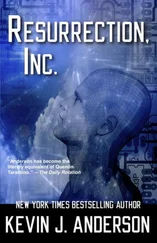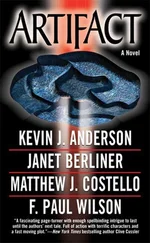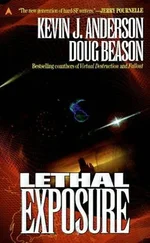His job at the anchor point had been a godsend, and he knew his family had pinned all their hopes on the slim chance of his success. They gambled on him working his way up in the world, and finding a spot for them, too, so that they could escape from the mines.
If he could only establish a foothold here, perhaps Troy could find jobs for his sisters, a new position for his father, anything to free them from their cramped quarters and daily drudgery. Troy had vowed to do his best, but the way Cren treated him, he didn’t think his chances were too great.
On one of the first days, the boss had yanked him aside for a lecture. Cren jabbed a finger at Troy, keeping his voice low. “I don’t like being ordered to hire a redneck yokel from dirt-digger Koman Holding,” he said. “I don’t care who your father is or what he did, but this isn’t a free ride for you. I’m going to watch you closer than any of my other team members—because if you don’t deserve to keep your job here, there are plenty of others who do. Don’t think your father is going to get you out of trouble again.”
Troy swallowed and shook his head. “No, sir. He can’t—he has no money left. He spent it all just to get me this job.”
Now, Troy looked around him, wide eyed at the big city, where citizens went about their jobs as if everyone on Atlas was so blessed. Sol-pol guards stood at the corners, keeping order. Pilgrims in hooded robes moved about, muttering to themselves. Representatives from the outer landholdings met to make deals, trade supplies, and increase their own power. The space elevator landed with a thunking sound of locks and stabilizers.
Cren yelled at Troy again. “Hey, Boren—I’ve got a suggestion. Quit daydreaming! Come help us unload. Do your work, dammit! The car is down.”
Troy snapped out of his reverie and ran to do his job.
When the tall elevator car opened its bottom level, two passengers disembarked, stepping carefully onto the ramp the workers had rolled up and clamped into position by the access hatch. Troy was fascinated by the two Guild Mediators, in their white robes and crimson sashes, who had gone up to inspect operations on the Platform. A pair of elite guards also emerged from the elevator, escorting the Mediators.
When the passengers were clear and checked through security, Troy and his coworkers entered the cramped main chamber of the elevator, bumping shoulders as they wrestled with the containers lashed down in the lower storage bay.
Troy held the manifest cards, shuffling them as he tried to keep track of everything that came out of the elevator. He was especially careful not to get distracted and miss an item. Everything had its place on his list and in the storage warehouse.
Over by the chain-link fences Cren stood watching, checking each activity around him as if he could somehow keep control through the intensity of his scrutiny. Troy worked with greater diligence, trying not to reveal that he knew he was being watched.
Men in cargo hauler jumpsuits unloaded the sealed packages of replacement computerware: perfectly sandwiched circuits grown in orbit, sapphire films laid down in impedance paths on wafers, then sliced into specially patterned chips that followed old templates from Earth.
The man in charge of the Platform, Kareem Sondheim, whose property and power rested in orbit, was called the “landholder without land.” The ancient man was said to be one of the original occupants of the first colony ship that had arrived 231 years earlier. Sondheim had never set foot on Atlas. He had remained alive by staying in zero gravity and indulging in sophisticated geriatric treatments that were not available on the surface.
Sondheim kept control of the Platform’s genetic library of embryos and cloning sequences the colonists had brought from Earth; its vast array of species, a veritable Noah’s ark, would provide the foundation of an Earthlike ecosystem on a new world.
Unfortunately, Atlas had proved more inhospitable than they had expected.
The planet’s atmosphere and climate were tolerable, with the right temperature range and an amenable mix of component gases. But Atlas was just at the very cusp of bringing forth life of its own. Its fledgling ecosystem was shallow and undiversified, with only a few primitive species, most of them in the cradle of the sea. The soil was utterly barren, forcing the colonists to begin their work several steps farther down the chain than they had hoped.
The native biochemistry was incompatible with human systems, but for a very few exceptions, such as the Veritas drug. The planetary ecology and the new Terran organic matrix were two independent and parallel paths.
Unable to turn back to Earth across the gulf of a fifty-year voyage, the colonists had to start from scratch, and they had held on by their fingernails, gradually using up what supplies they had brought with them. Separated from assistance by half a century, they could not simply send home for a new batch of supplies. The colony’s technical resources had been only marginally replenished by the four other ships that had arrived in the intervening years.
Landholders continued to claim swaths of land, bombarding them with fertilizers, fixing nitrogen, irrigating deserts, and plowing under grasses, mosses, algae they had planted to lay down a nutritive soil matrix. New life forms were introduced experimentally and with great caution once they were carefully selected from the genetic library on the Platform….
As the packages were unloaded from the elevator, Troy documented the computer chips, finding their notation on his manifests, then moved on to log a series of insulated fish tanks for Dokken Holding. The tanks were filled with thousands of trout and salmon fry that might find enough to eat among the strands of algae and the dragonfly larvae Franz Dokken had previously introduced into his warm artificial ponds.
Toth Holding had ordered cages and cages of live chicks grown from embryos aboard the Platform, and the birds were now ready to be turned loose in the grain debris in the fields.
Muttering to himself to verify his own markings, Troy moved about to inspect the cargo with loose manifest pages fluttering in his hand. He found a trio of cages holding three water buffalo calves, small and fragile and bleating. The beasts had knobby knees and large wet nostrils. Their dark eyes flicked around in confusion. According to the manifest, the water buffalo would be put to work in the rice fields in the river delta at Sardili Shores.
When someone called for a new species—such as these water buffalo, or the chickens—biological technicians on the Platform took the stored embryos from their precious library, cloned them, and grew the new animals to their birth age. The offspring were then shipped down on the space elevator.
The cargo haulers heaved the water buffalo cages out of the elevator car, bumping into each other and wrestling the beasts onto the concrete receiving area. Troy followed them briskly, needing to verify the serial numbers tattooed in the animals’ ears and scribbling on his manifest sheets.
The calves shifted awkwardly in their cages, trying to maintain their footing. Suddenly, one of the handlers slipped and let loose his corner of the cage. It crashed to the ground with a loud noise that triggered a panicked reaction. The female handler shouted and scolded her partner. The water buffalo bleated a pitiful sound.
On the pad the handlers roughly set down their wire mesh cages containing thousands of cheeping chicks, not noticing that one door had not been fastened properly. Suddenly the front of the cage sprang open, spilling a chaotic flock of fuzzy yellow chicks that scattered chirping across the landing area. Some ran toward the toroidal supports and padded bumpers around the anchor point where the elevator had come to rest.
Читать дальше












